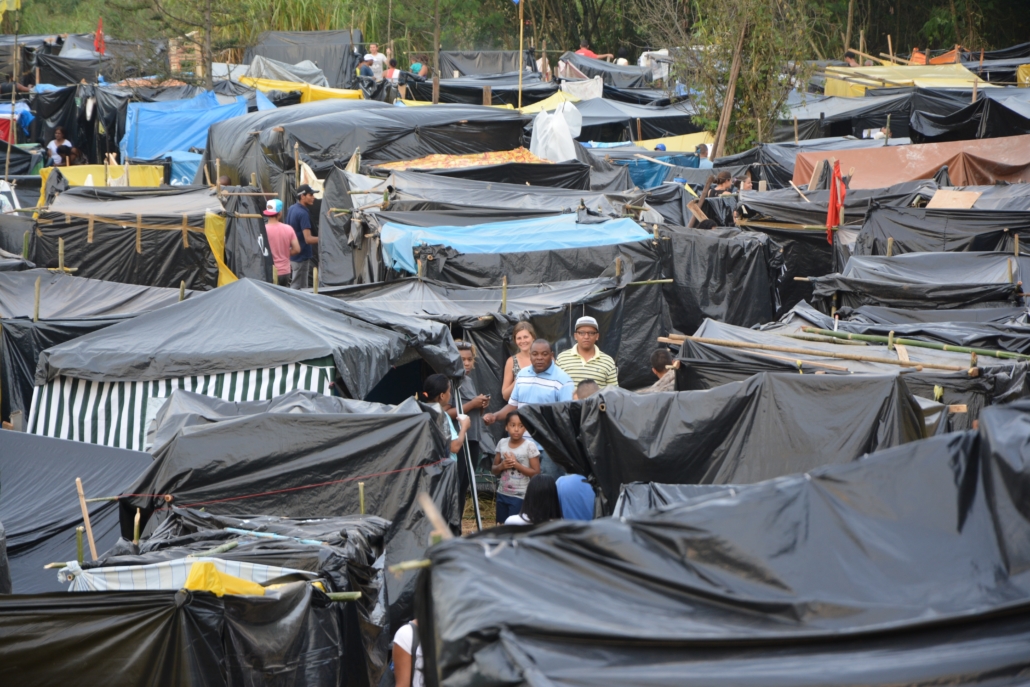Addressing Homelessness in São Paulo

Under far-right President Jair Bolsonaro, Brazil has experienced devastating economic and human loss in its response to the COVID-19 pandemic. From his initial downplaying of the seriousness of the novel coronavirus and spreading of misinformation about treatments, Bolsonaro has now taken on an apathetic role in the crisis. His attitude persists in the midst of the country’s highest daily death toll counts and hospitalization rates. The failure of Bolsonaro’s government to lead the charge in Brazil’s COVID-19 response has created an urgent need for communities to step in. Community action is necessary to help deal with the growing homelessness in São Paulo and other major cities. Furthermore, many in Brazil’s middle class are at risk of falling into poverty due to COVID-19’s long-term effects on the economy. This includes layoffs, a lack of jobs and a lack of financial support from the government.
Rise in Homelessness
São Paulo, the largest city in Latin America, was already struggling with high rates of homelessness prior to COVID-19. In the four years leading up to the pandemic, São Paulo’s homeless population increased by 65%, totaling an estimated 24,000 people. Aid workers believe the true number is likely much higher. Many of the newly homeless during the pandemic were already living day-to-day in crowded favelas, while some previously had employment in middle-class jobs, such as teachers.
The protracted issue of homelessness in São Paulo has created much frustration. Violence has occurred as police have recently attempted to disperse large homeless settlements notorious for open-air drug use in central neighborhoods of the city. Wealthy citizens increasingly isolate themselves from issues of poverty in São Paulo. Meanwhile, the middle classes face increasing economic instability and coexisting with a growing homeless population.
Community Approaches
Community action has been a lifeline for São Paulo’s homeless population before and during the pandemic. Two common approaches local NGOs and community leaders are advocating for are Universal Basic Income (UBI) and housing. A law guaranteeing UBI in Brazil underwent signature during the presidency of Lula da Silva several years ago, but to date, the country has not put it into action.
The Gaspar Garcia Center of Human Rights
The Gaspar Garcia Center of Human Rights advocates for the right to decent housing in São Paulo. The center provides legal guidance for citizens in precarious living situations. It also has programs for job training to work in the formal sector. One program the center has created is a recycling collective, which has employed 150 formerly-homeless Brazilians. The center also raises awareness for the rights of informal workers and provides legal guidance.
The Catholic Church
The Catholic Church has had a long-standing presence in the homeless communities of São Paulo. Father Júlio Lancellotti of the São Miguel Arcanjo parish has garnered media attention during the pandemic for distributing meals and hygiene products to over 400 homeless citizens on a daily basis. For his activism, he has been subject to death threats and harassment by some. This highlights the complexities of public opinion towards the homeless in São Paulo.
The Homeless Workers Movement
On the political side, an up-and-coming Socialist politician named Guilherme Boulos recently ran for mayor of São Paulo. Although he lost, expectations have determined that he will be a leftist challenger in wider Brazilian politics in the near future. Boulos is a leader of the Homeless Workers Movement, a group that demands housing for the city’s homeless population. The group takes over abandoned buildings in the city center. By doing so, it demonstrates its potential use for public housing in acts of civil disobedience. Boulos has support from the controversial but still widely popular former Brazilian President Lula da Silva.
Conclusion
Homelessness was already an important issue in São Paulo prior to COVID-19, and it will remain one. Without more governmental assistance to community organizations, inequality and homelessness will continue to escalate. President Bolsonaro has shown a general lack of empathy for impoverished Brazilians. Instead, he chooses to exude strength and use harsh law enforcement tactics to address societal issues. Fortunately, community action in São Paulo has shown that many have not given up on trying to help vulnerable populations during these challenging times.
– Matthew Brown
Photo: Flickr
